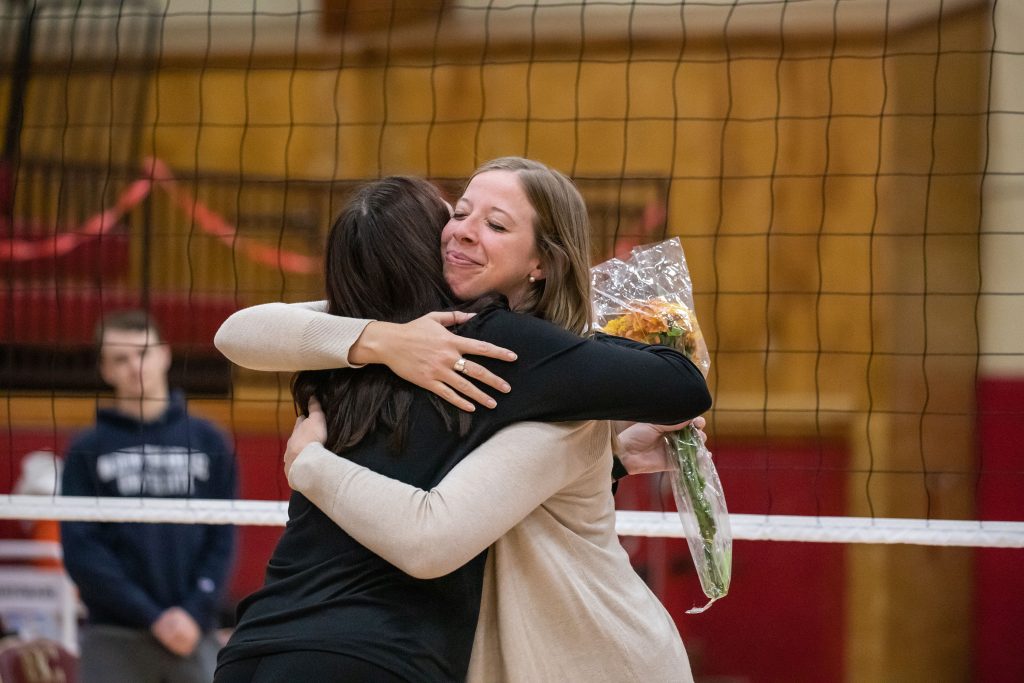The mental health landscape for current students looks vastly different than it did even 10 years ago. Social anxiety has increased in students on college campuses across the nation. One of the biggest changes is information overload: Generation Z was raised in an era in which any question can be answered with a touch of a button. But a steady stream of information, especially in terms of societal issues such as climate change, rising financial burdens and threats to security, means increased worry. Social media integration into daily life can mean constant comparison with peers. And navigating high school and college life during a global pandemic has resulted in limited coping strategies and less resiliency than seen in previous generations.
Bridgewater College’s Office of Student Life oversees all aspects of student affairs including residential life, health and wellness, social engagement, campus safety, Title IX, and diversity, equity, and inclusion. Across the board, Student Life staff is encountering students who require increased support and additional interactions to help them problem solve. Led by Vice President for Student Life and Dean of Students Dr. Leslie Frere, Student Life at BC has become increasingly focused on creating an experience for students that facilitates continued growth and development regardless of where a student might be in that process.
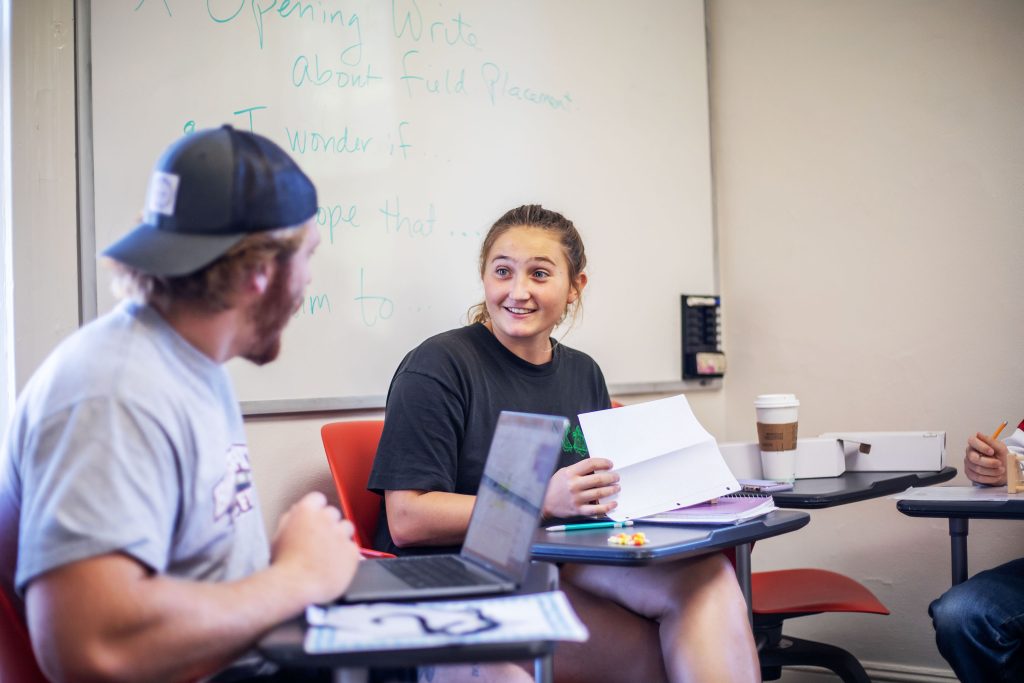
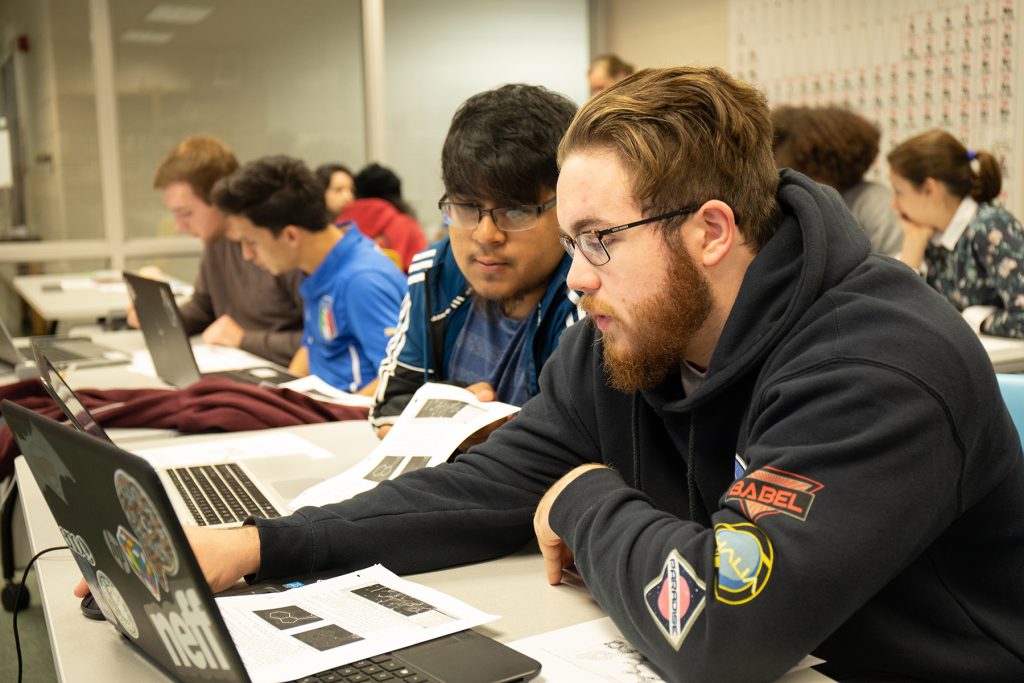
“When this generation of students bumps into what we would consider normal growing pains, it can become intolerable very quickly, because many students haven’t encountered these obstacles until they get to college,” says Frere. “Parents are always the best advocates for their kids as they grow, and we saw that many parents of kids in high school were put into positions where they felt like they had to intervene and in some cases over advocate for their kids, especially during the pandemic. While this was very helpful at the time, the downside is that some current students may have had limited practice in self-advocacy, which sometimes results in a lack of opportunity to develop coping skills that would have been the norm by the age of 18 for prior generations.”
Student Life staff is focused on working together in a collaborative nature, which has only increased in the last year. Associate Vice President for Student Life Liz Howley oversees residence life, counseling services and health services, and the College’s Connection Assessment Referral Effort (CARE) team response—all areas that often overlap in terms of connecting student needs with resources. Assistant Dean of Students Whitney Smith ’01 oversees student engagement to ensure continuity and responsiveness in programming activities on campus, and Associate Dean of Students for Diversity, Equity and Inclusion Dr. Gauri Pitale is often tapped when situations would benefit from conversations involving inclusivity and equity. Additionally, Counseling Services, with new Director Dr. Courtney Zongrone at the helm, has already instituted new practices to better serve student needs. Beginning in the fall semester, the number of counseling sessions available to students was eliminated, meaning students can meet with counseling staff as long as needed to work through problems. While removing these limits can create some constraints on the number of students able to be seen for services, the counseling center is addressing this by creating quicker access. Starting in January 2023, students are able to be seen for a consultation within four days of signing up for services. Zongrone says these meetings will allow students to be seen by a staff member to ensure that every student is assessed for counseling needs and potential risk factors. The counseling center, working closely with other campus offices such as academic services, connects students with whatever resource will best support them based on their presenting concerns. Counseling staff includes Zongrone, mental health counselor Garrett Serrels and graduate students from area colleges, with an additional full-time counselor hire in process.
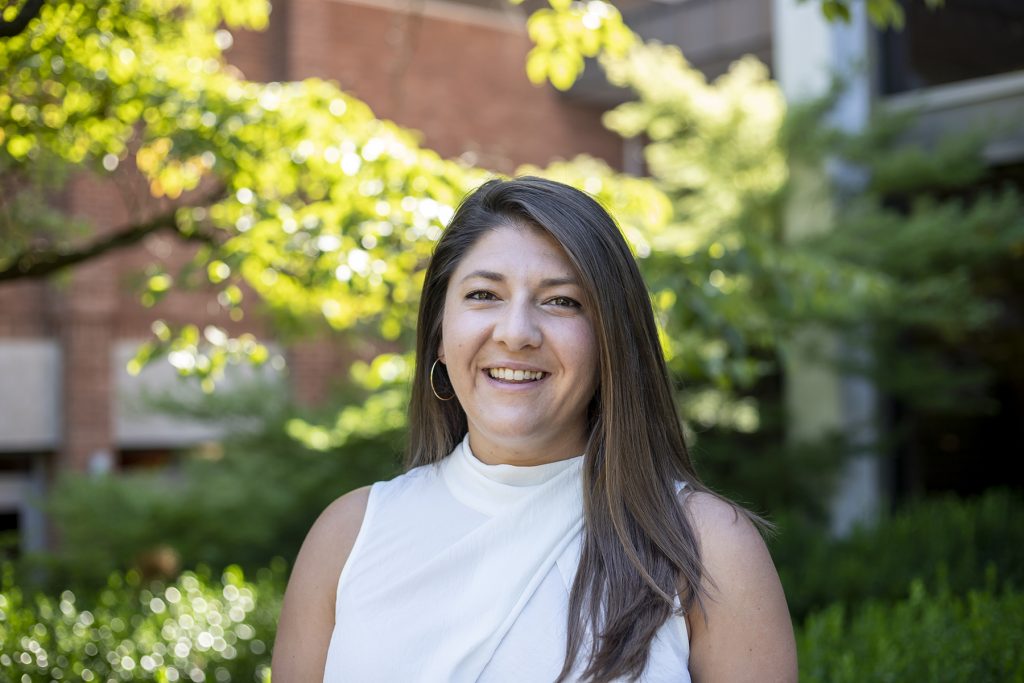
One of the most effective examples of a collaborative effort to support students comes in the form of the CARE team, which is a multidisciplinary body of stakeholders from across the College and includes two case managers for student success, one of which is former Director of Student Wellness Shannon Pope, to provide additional support for students to help them develop tools for self-advocacy and well-being. CARE reports address behaviors that impact a student’s ability to be successful at Bridgewater and can be made by anyone—students, faculty, staff and families—and Howley says the key to helping students is reporting signs of concern as soon as they are observed. Each case is thoroughly reviewed by a team of staff from several areas including student wellness, residential life and community standards, academic affairs, athletics, academic services and support, and counseling services. Every report undergoes a thorough review process, and each student is connected with the appropriate staff and services to best help them. The CARE team meets weekly with a small group and holds a larger monthly meeting to keep members informed of case progress and updates.
If a CARE team report relates to a student’s immediate health, safety or welfare, the report is shared immediately with Campus Police and Safety. In addition, a Threat Assessment Team made up of staff members from several departments on campus, chaired by Frere, meets in real time to assess any concerns of student and campus safety. That team also meets once a month as a touchpoint.
The overarching mission for the Office of Student Life is student development and success. Whether a student is interacting with office members through a club or organization, as part of a wellness service, or in a conduct review hearing, each staff member strives to help students learn how to become the best versions of themselves they can be.
“We’re in the business of education, and, because our work is focused on developing students, we must be able to meet each of them where they are and give them what they need to be successful,” says Frere. “Everyone here understands that the common mission is student success.”
Support for student-athletes
Student-athletes remain one of the largest populations on campus, making up more than a third of the student body. They see some of the same stressors as their fellow students but also encounter additional worry related to athletic performance and helping their teams be successful. Body image and injuries that prevent playing time also come into play. During the fall semester, Zongrone met with two athletic teams, women’s lacrosse and women’s volleyball, as part of her goal to connect with organizations across campus and make more widely known the resources available to students. She spoke with both teams about mitigation techniques they can use when visiting new spaces that may cause anxiety, and she taught the volleyball team an accountability and grounding technique that they use before each game.
“I want to create a culture of support here where students feel empowered to take agency over their own lives,” Zongrone says.
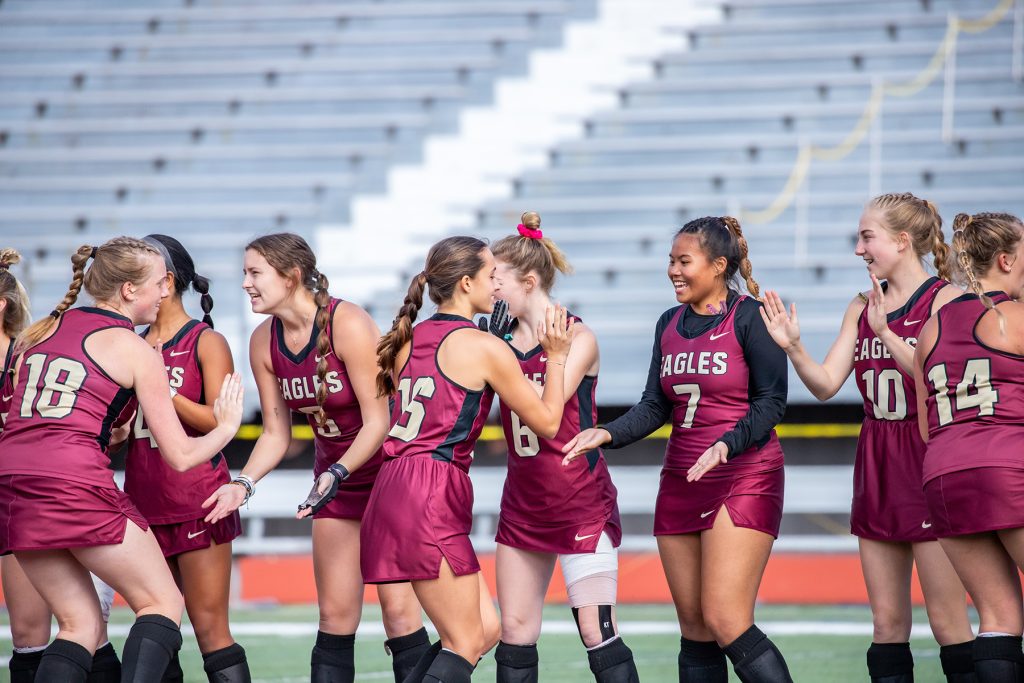
In her 11 years coaching at the College, Head Volleyball Coach Erin Harris says she has seen a change in her athletes and that today’s students are more impacted by stress and anxiety. Harris, whose own volleyball coach at Juniata College instilled in her a focus on mental toughness and how to handle adversity, makes mental health part of her team culture. During their six-days-a-week practices in season, they talk about what stresses the students are experiencing, and Harris checks in regularly with her team leaders about their peers. She also institutes leadership training with all her athletes, and these informational sessions include tips on how to be a great leader, how to advocate for your team and yourself and how to develop better recovery skills and confidence. These skills, including how to have tough conversations, are transferable to life outside athletics.
“A big piece to our puzzle here is focusing on developing a lot of those skills, not just to handle performance anxiety and performance stress but real life,” Harris says. “As a coach, I let them know that they’re more valuable to me as a person than their performance on the court. I want to make them feel safe and seen and heard. When they’re struggling, I follow up and check in with them.”
Harris says having her students connect with staff such as Zongrone helps them during their time at Bridgewater and in preparing for life after college.
“Bridgewater does a great job of supporting their students,” Harris says. “I’m very fortunate because I feel like I can take the information I’m given as a coach and help connect our students with the right people, including counseling, the DEI office and academic resources. We’re very lucky to have professionals who are here to help Bridgewater students succeed and give them opportunities to grow.”
Head Men’s Lacrosse Coach Mic Grant has been at the College since the inception of the men’s lacrosse program 11 years ago and says he loves the camaraderie and support system athletics provides.
“I love that we as coaches have a small part in shaping the men and women we interact with during their time here,” he says.

Grant, too, has seen a shift in his players over time and says as a coach you must adjust to meet the current generation. His current student-athletes were raised in a more instantaneous culture and live in the moment, and he has adjusted his practices to be more up-tempo and include more variety in drills.
Grant has an open-door policy with his players to talk about anything in their lives: jobs, family, relationships. He says that, especially in athletics, it can be viewed as macho for young men to not share their feelings, but Grant continually tells his players his office is a judgment-free zone. He says his players, especially upperclassmen, are now more open to sharing and asking for help.
“We try to create the culture that it’s okay if you want to come in and talk. You don’t have to feel like you have to take everything on,” he says. “I think that coming in to college as an athletic team member, you have that built-in family. They can always lean on each other.”
Student-to-student support
Morgan’s Message is a national organization that was founded by the family of Morgan Rodgers, a Duke lacrosse player who died by suicide in 2019. The organization aims to end the stigma around mental health, especially within the student-athlete community. Meredyth Rankin ’23, an English major and field hockey player, helped found a chapter of Morgan’s Message on Bridgewater’s campus during the COVID-19 pandemic. As a club, they have monthly meetings in which they discuss different topics related to mental health, and they do campus-wide initiatives, including writing positive chalk messages in front of the John Kenny Forrer Leaning Commons.
“As an ambassador for Morgan’s Message, I’ve learned that mental health is different for everybody. It’s not a clear, linear journey,” Rankin says. “I’ve become more able to recognize my struggles and triumphs with mental health, and my friends and I have had more conversations about mental health.”
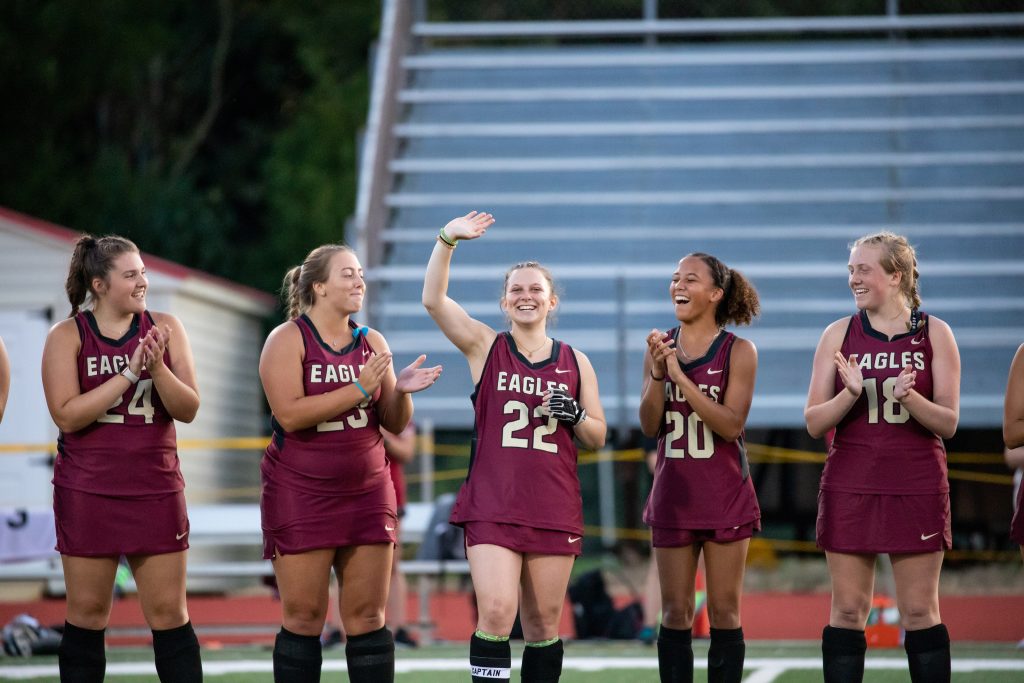
The club advisor for Morgan’s Message is Rankin’s head field hockey coach, Gina Stephan. Rankin says Stephan has created a close-knit team focused on supporting one another on and off the field, as defined by their team purpose of “legacy, family and growth.” The team also dedicated a game this fall to Morgan’s Message to help promote the club’s mission.
“It’s a really positive environment,” Rankin says. “The coaches are amazing, and they’re always there to help. It’s one of the best teams I’ve ever been a part of.”
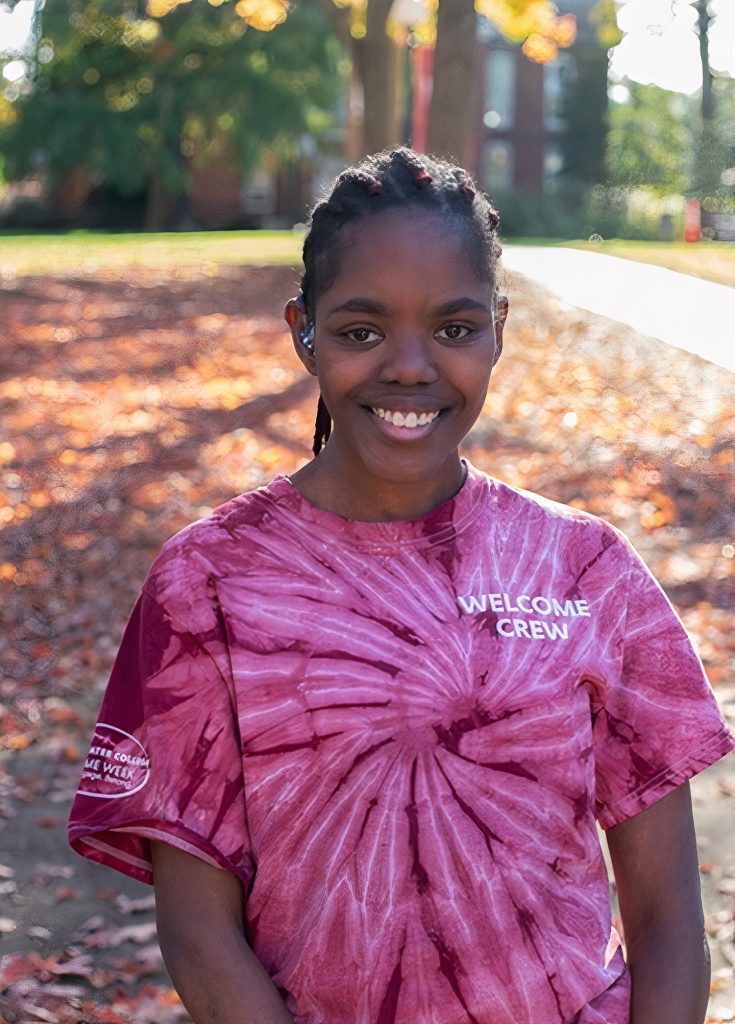
Active Minds is another club on campus focused on student mental health and well-being. Psychology major Jaia Dunbar ’23 serves as president of the organization of which she has been a member since her first year (Dunbar also serves as an ambassador with Morgan’s Message). She says depression, stress, anxiety and a lack of a focus on self-care are some of the biggest issues with which college students struggle. Both clubs focus on spreading awareness of mental health and normalizing that it’s okay to ask for help when needed. Dunbar, who plans to attend graduate school to become a licensed clinical social worker, says Bridgewater provides great resources to students, including counseling services and chaplain services as well as the close connections with classmates, teammates, professors and coaches.
“My main message to students is to get help if you need it. Because of the stigma, it can be hard for people to ask for help,” Rankin says. “Everybody goes through it in their own way, and it shouldn’t be something we’re afraid to talk about.”
— By Jessica Luck
jluck@bridgewater.edu
